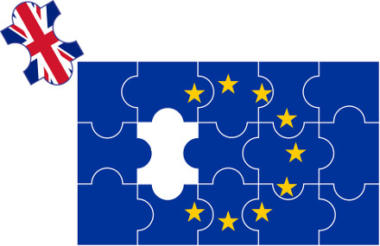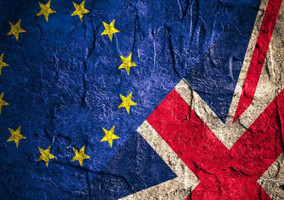Many in the sector, me included, were shocked and saddened by Brexit, and what it would mean not just for ourselves, or the country, but for the causes and people the charity sector is there to serve. Yet with the Conservative government and Labour opposition committed to deliver it, the decision seemed final.
Two years on the situation is different and I believe charities around the UK should support calls for a People’s Vote on the final deal.
This is why:
We have always believed in evidence-based policy-making. How many times have we argued with national and local governments that they need to consider the evidence before making decisions? There was sparse evidence of what Brexit might mean in 2016. The debate consisted mostly of bold assertions, statements and hypotheses. We may not know all the facts now, but we know a lot more than we did two years ago. And when the final deal is done, people will at the very least have more clarity on what our future relationship with the EU would be. We voted once based on what we knew then; now we should support calls to vote again on what the final deal actually is.
As Claire Wilkins from NPC sets out in her blog We Need to Talk About Brexit, the sector’s views on Brexit have themselves also changed over the last two years, now identifying many more issues of significant impact. Charity Finance Group’s updated Cost Benefit Analysis, suggests that “Brexit will be bad for charities and bad for their beneficiaries”. Even the government’s own figures show the negative economic impact of leaving the EU. And recent research from Warwick Economics also shows a direct link between the areas that voted Leave and the areas that suffered the worst cuts. Cuts that many voluntary and community organisations argued against.
Good governance
It is good governance. The Charity Commission is clear how decisions should be made:
• make sure you are sufficiently informed, taking any advice you need
• take account of all relevant factors
• ignore any irrelevant factors
So if a charity were making the decision, it would not be good governance for trustees to say “We made this decision two years ago. We have more evidence now, but we are going to press ahead anyway.”
Integrity is a value shared across the sector. It is also one of the values set out in NCVO’s draft Code of Ethics for charities. Yet we know that both sides played fast and loose with the facts in the referendum, whether the £350m a week on the Vote Leave battle bus, the suggestion that Turkey was about to become a full member of the EU, or the “£4,300 a week for every household” claim made by “Project Fear”. No-one can promise no unfounded assertions in a future People’s Vote, but armed with more evidence, and with a clear deal to vote on, we can surely expect a higher level of integrity in the debate.
Speak truth to power
Expressing our true views on policies we care about. The new Civil Society Strategy makes it clear the government wants us to speak truth to power. Let’s speak that truth. For example, the positive economic impact of migration is absolutely clear. What has become clearer is how reliant we are on European migrants’ contribution to our society in ways that affect the very social and economic fabric of our lives – as nurses in the health service, fruit or vegetable pickers, and highly skilled workers in the tourist, finance, charity or commercial sectors.
The views of the communities we work with have changed. With many of these factors becoming clear, views on Brexit are changing. Recent polling suggests that a majority of people would now not vote leave and that views in over 100 constituencies have changed.
'Democracy should be an ongoing process'
Julia Unwin reflected previously on research showing the extent that some communities had been left behind, emphasising the need for voices from those communities to be heard, and the role of charities to help that happen. More recently, she made it clear how important it is for communities to be given more control, not just a greater “sense of control”.
Many of these communities voted leave in 2016, but with polling showing those views have changed, organisations based in these areas, working closely with these communities, should get behind the People’s Vote so that those communities can be heard once again. Democracy should be an ongoing process, rather than reflecting a stagnant moment in time.
So with a greater understanding of the issues, ensuring we put out our own values into practice, and with views of communities in many areas of the country changing, I believe we can pursue our charitable objectives and help the communities we serve truly take back control by supporting calls for a People’s Vote on the final deal.
Peter Lewis is chief executive of the Institute of Fundraising. He writes in a personal capacity.
Related articles











